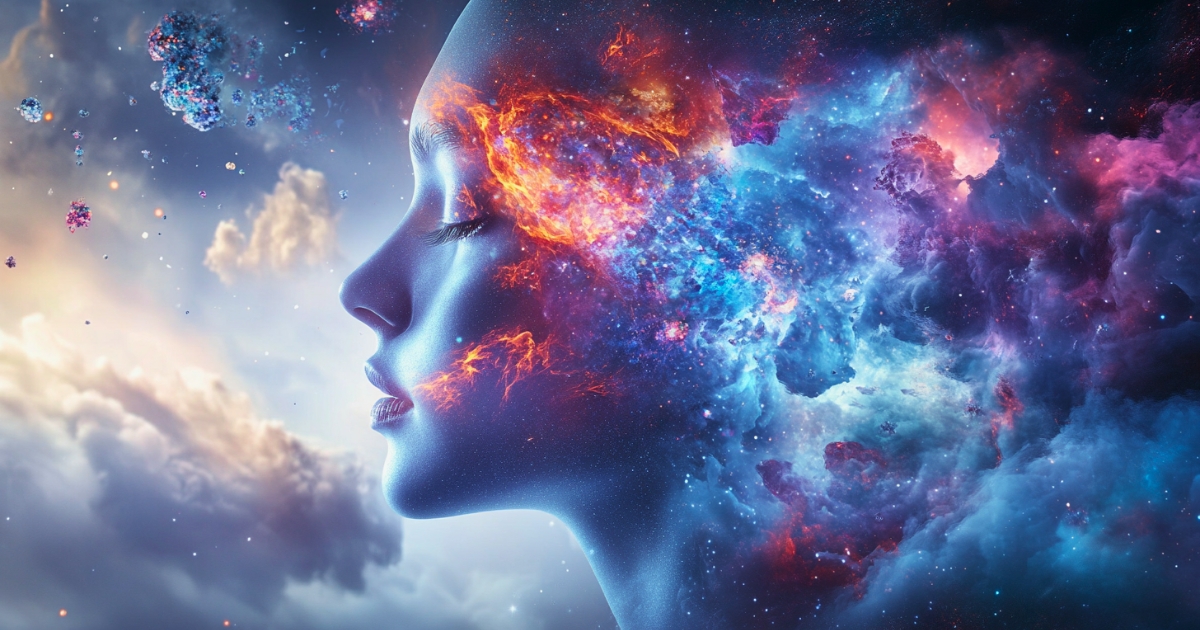In recent years, the “Law of Attraction” has become widely known in the field of self-improvement. This concept suggests that an individual’s thoughts and feelings can directly influence the physical world, allowing one to attract desired outcomes. While this law may seem unscientific at first glance, recent insights from quantum physics might provide a surprising scientific explanation. This article explores the mechanisms of the Law of Attraction from the perspective of quantum physics and investigates its scientific plausibility.
Basic Concepts of Quantum Physics
Quantum physics is a branch of physics that describes the microscopic world of atoms and subatomic particles. In this realm, strange phenomena occur that are entirely different from our everyday experiences. Some important concepts in quantum physics include:
- Wave function: A mathematical function that probabilistically represents the state of a particle
- Superposition: The phenomenon where a particle can exist in multiple states simultaneously
- Wave function collapse: The phenomenon where the act of observation determines the state of a particle
- Quantum entanglement: The phenomenon where instantaneous interaction occurs between distant particles
These concepts suggest the uncertainty and interconnectedness of the microscopic world.
Consciousness and Quantum Physics
Max Planck, one of the founders of quantum physics, stated that “consciousness is fundamental reality.” This idea suggests the possibility that consciousness can influence the physical world.
Recent research has indicated the possibility of quantum phenomena occurring in structures called microtubules within the brain. Mathematician Roger Penrose and anesthesiologist Stuart Hameroff, who proposed this theory, claim that consciousness is the result of quantum processes.
Intersection of the Law of Attraction and Quantum Physics
When exploring the connection between the Law of Attraction and quantum physics, the following considerations are possible:
- Observer effect: In quantum physics, the presence of an observer influences the behavior of particles. This is similar to the Law of Attraction’s claim that our consciousness and attention can influence reality.
- Non-locality: The phenomenon of quantum entanglement shows that instantaneous interaction can occur between distant particles. This may support the idea that our thoughts are somehow connected to the entire universe.
- Many-worlds interpretation: One interpretation of quantum physics, the many-worlds interpretation, posits the existence of parallel universes where all possibilities simultaneously exist. This aligns with the Law of Attraction’s claim that we can choose our desired reality.
- Quantum field theory: The idea in quantum field theory that all matter is fundamentally a vibration of energy fields resonates with the Law of Attraction’s claim that thoughts and emotions are also a form of energy that can influence the physical world.
Scientific Possibilities and Challenges
While it’s currently difficult to fully explain the Law of Attraction through quantum physics, there are some interesting research findings and theoretical considerations:
- Placebo effect: The placebo effect, where beliefs and expectations cause actual physiological changes, is considered an example of thoughts influencing reality.
- Epigenetics: Research in epigenetics, which shows that gene expression can change due to environmental factors and lifestyle habits, suggests the possibility that thoughts and emotions can have biological effects.
- Mind-body connection: It has been scientifically proven that stress and positive emotions can affect the immune system, demonstrating the close relationship between mind and body.
- Collective consciousness studies: There are research results suggesting that when many people simultaneously meditate or pray, it can have a positive influence on the surrounding environment.
On the other hand, there are challenges in scientifically verifying the Law of Attraction:
- Reproducibility: It’s difficult to objectively reproduce phenomena based on subjective individual experiences.
- Proving causality: It’s not easy to prove a direct causal relationship between thoughts and real-world events.
- Selective attention: It’s necessary to distinguish between the psychological effect of noticing opportunities related to desired outcomes due to focusing on them.
- Ethical issues: Misinterpreting the Law of Attraction could lead to ethical problems, such as blaming individuals’ thoughts for unfortunate events.
Conclusion
Insights from quantum physics may provide an interesting theoretical foundation for some claims of the Law of Attraction. Concepts such as the interaction between consciousness and the physical world, non-locality, and the observer effect suggest the possibility that our thoughts can influence reality.
However, it’s currently difficult to fully explain the Law of Attraction scientifically, and further research is needed. In the future, advances in quantum biology and consciousness studies are expected to deepen our understanding of the relationship between consciousness and the physical world.
Exploring the scientific possibility of the Law of Attraction may provide important insights into understanding the essential relationship between consciousness and reality, not just verifying self-improvement techniques. Research in this field has the potential to greatly influence our worldview and self-perception.
Moving forward, it’s important to continue exploring this fascinating topic while maintaining a balance between an open mind and scientific rigor.


